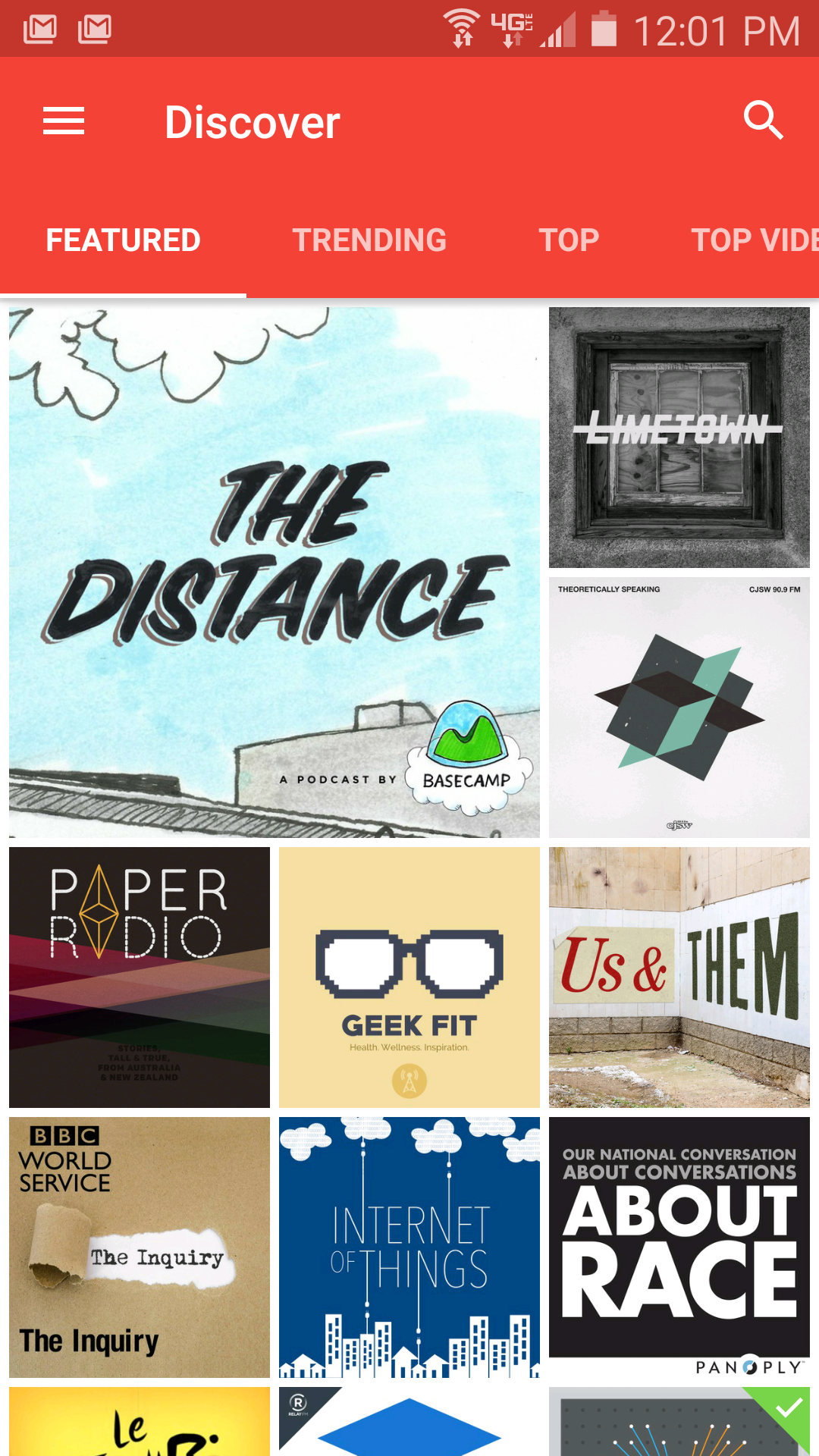Athena Uslander is the Cyrano de Bergerac of brownies. The company she co-founded in 1983, Silverland Bakery, makes sweet treats that are sold under the names of grocery stores and restaurants across the U.S. and even internationally. Silverland Bakery may not have the consumer name recognition of a Mrs. Fields or Betty Crocker, but Athena Uslander has the sustainable business and entrepreneurial career she always wanted. Check out the latest episode of The Distance:

About Wailin Wong
Reporter/Producer at The Distance. Previous bylines at Chicago Tribune & Dow Jones Newswires. Likes waffles and news.
A new episode and a big milestone
When Abdul Qaiyum, a young Pakistani immigrant and recent pharmacy school graduate, discovered Merz Apothecary in 1972, the Swiss German drugstore was on the verge of closing permanently after nearly a century in business. Qaiyum bought the store from the founding family and has run it ever since, transforming a modest purveyor of homeopathic remedies into a retailer that combines modern business savvy with old-world nostalgia. An additional fun fact about Merz Apothecary: Founded in 1875, it’s the oldest business we’ve featured to date.
It’s been a very exciting couple of weeks for The Distance! The show was featured on iTunes and hit No. 1 for Business News podcasts. Thanks so much for listening, rating/reviewing the show and spreading the word about the stories we’re telling. We appreciate it so much!
Grave Matters
“I guess I was always memorable, if for nothing else than oh, that’s the girl whose parents have the death business.”
Lisa Troost is the fifth-generation president of the Peter Troost Monument Company, which has been making grave markers, headstones and mausoleums in the Chicago area since 1889. A monument is a one-time purchase that’s meant to last forever, and Lisa Troost takes that responsibility seriously. The new episode of The Distance takes you behind the scenes at this unique family business.
Meet the Bales Girls
Stacey Bales has worked in almost every department at her family manufacturing business, from the front office to the shop floor. But when it came to running the entire company, she expected her father, Steve, to do that for at least another decade. That all changed with Steve Bales’ sudden passing in 2009. Stacey and her sister, Sara, found themselves in charge of the business without their father, boss and mentor. Today, they’re building on Steve Bales’ legacy while crafting their own vision for the company. We share Stacey and Sara’s story on the latest episode of The Distance.
If you haven’t already, please subscribe to The Distance so you can get all our new episodes as we release them!
Ancient history, modern family
We have a new episode of The Distance about a family of numismatists and antiquities dealers (listen to the episode to find out what a numismatist does!). As students of history, Harlan Berk and his three children know that circumstances around them can change rapidly. They’ve learned to adapt the family business through 51 years of buying and selling ancient coins, as well as antiquities and maps. From rare artifacts to a mystery involving long-lost valuables and the FBI, there’s no telling what might turn up next at Harlan J. Berk Limited.
Farm Wisdom
The latest episode of The Distance features the Jones family, which has been farming in Iowa for generations. They have weathered tough winters, the consolidation of small family farms and the farm crisis of the 1980s. Today, 29-year-old Will Jones is in charge, and he’s melding his own vision for the family business with the collective wisdom of predecessors like his father.
If you’re hankering for more stories about old businesses and professions after listening to the episode, sign up for The Distance newsletter at the bottom of the home page. Every two weeks, when we release a new episode, I share three recent stories that have caught my attention. Recent favorites have included the re-release of an incredible radio documentary about the Sunshine Hotel, one of New York’s legendary flophouses; an episode of the podcast Death, Sex & Money that interviews a sixth-generation funeral director; and a Miami Herald story about some of Florida’s last remaining tollbooth collectors. Sign up to get these goodies in your inbox!
Growing our audience for The Distance
In late May, Jason and I decided to transition The Distance from monthly longform written stories to a podcast that would come out every two weeks. Jason also set an ambitious target for the podcast: Get to 6,000 listens on any one episode by the end of the summer. At the time, our most listened-to episode had around 2,000 listens.
I’m thrilled to say that our first episode hit 6,000 listens on Friday. (If you missed that story, which is about the World’s Largest Laundromat, we re-released it today with some edits and improvements.) Not only did we reach our goal, but we saw a sustained increase in our audience—our last two episodes have each hit 4,000 listens in their first two weeks. To put this in perspective, when we made the format switch in May, no single episode had cracked 3,000 lifetime listens.
So how did we grow our audience for the podcast? Here’s a rundown of what Shaun and I tried this summer. Some of it worked and some of it didn’t. But it was all a learning experience, and one that’s continuing as we keep expanding our subscriber base. If you’re in a similar position as we are, whether it’s with a podcast or a different medium within this terrifyingly uncertain world of content production, I hope you find some of our learnings useful too.
Stuff That Helped
- We got nice shout-outs from a few high-follower/influential Twitter accounts: Gary Vaynerchuk (thanks to Jason for telling him about the show), StartupWeekend, Rafat Ali of Skift and Jake Nickell of Threadless.
- I submitted The Distance to The Podcast Digest, a podcast about podcasts, and host Dan Lizette recommended our show on his August 9th episode. It was a really nice segment and especially gratifying because all I did was fill out a Google Form on his website. Dan actually listened to our back episodes and enjoyed them enough to recommend us. A rare slush pile success!
- Pocket Casts, a podcatcher app, featured The Distance. Below is a screenshot a friend of mine sent me.
- We got onto Product Hunt.
- We briefly made it into the Top 10 for Business News podcasts in iTunes. That was thanks to a bunch of new ratings/reviews that came in one afternoon from Basecampers—who, I should mention, had been promoting The Distance on their personal social media accounts and to their friends and family all summer long. Thank you!
- What really helped build some momentum for The Distance was going to two episodes a month and boosting the show’s production values. So much of the content game is about consistency and regularity, and we got a sustained increase in listeners once we started doing twice-monthly episodes. Shaun added music, taught me how to capture better audio in the field and was a fantastic editor and producer all around. Stuff That Didn’t Work Out (or Hasn’t Yet)
- I emailed a bunch of podcast newsletters and websites to let them know about The Distance.
- I very awkwardly donned my publicist hat and pitched a couple national and local media outlets. This was incredibly weird for me, having spent my entire career on the other side of this transaction. I could stand to get better at it.
- We looked into joining a podcast network. That remains a potential option, but one for the longer term.

I’m really grateful that Basecamp is a company that believes in and underwrites projects like The Distance. I’ve learned a lot from working alongside everyone here. More TK, as they say! In the meantime, if you haven’t yet listened to The Distance or subscribed, please come aboard. We love making the show and have a lot of great episodes planned. Here’s to the next 6,000 listeners!
Pipe Dreams
The warehouse at Carma Labs in Franklin, Wisc. is filled with boxes of the 78-year-old company’s signature product, Carmex lip balm. But there’s something else going on in this concrete storage facility. Carma Labs President Paul Woelbing, the grandson of the company’s founder, is on year eight of a personal mission to construct a massive pipe organ at the warehouse that will be open to the community. Woelbing wants to spur interest in organ music among a new generation of listeners and players, building a musical legacy alongside his business one.
If you missed our previous episode about the history and staying power of Carmex, you can catch up on that story—and all our old episodes—at The Distance. At just 15 minutes apiece, our stories are great for binge-listening! And make sure to subscribe to our podcast so you catch new episodes as we release them.
It Soothes, It Heals, It Tingles
Alfred Woelbing made the first batch of Carmex at his kitchen stovetop in 1937. He was looking for a cold sore treatment and came up with a hit lip balm instead. Nearly 80 years later, Carma Labs is still family-owned and run by Alfred’s grandson, Paul, a former art teacher. In this episode of The Distance, find out what goes into the Carmex formula—both for making lip balm and for building a company that takes care of its customers and employees over the long term.
We are making a push to build up our audience this summer, and we’d love your help in spreading the word out about The Distance. If you’re enjoying our stories, please tell your friends about our show and encourage them to subscribe via iTunes or whichever podcatcher app they use. Thanks!
Cheesecake, the Chicago Way
The latest episode of The Distance visits Chicago institution Eli’s Cheesecake, which produces the equivalent of 20,000 cheesecakes a day. What goes into a Chicago-style cheesecake? How about a 1,500-pound Chicago-style cheesecake? Listen to the episode to find out. And if you like the show, you can subscribe to The Distance via iTunes or the podcast app of your choice. We’ll be back in two weeks with another episode about a long-standing business.